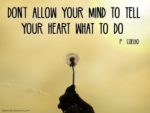Last updated on December 18th, 2019 at 03:53 pm
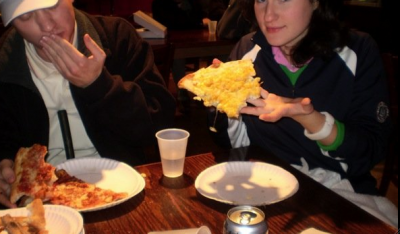 I’ve been obsessed with Kate Middleton ever since she burst on to the social scene as Prince William’s “friend.”
I’ve been obsessed with Kate Middleton ever since she burst on to the social scene as Prince William’s “friend.”
One of my big dreams is to someday have my own version of a royal wedding and following the engagement and wedding of Will and Kate afforded me plenty of distraction from working on my current travel dream.
Now that William and Catherine’s Royal wedding is over, what comes after you slim down to a 23-inch waist, marry your prince charming and become the most stunning bride in front of 1/3 of the world?
For Kate Middleton, and the rest of us, we are entering the phase I like to call the Royal wedding post-achievement hangover–
The headache after the party.
The temporary paralysis that can only be cured by a couch and greasy take-out.
The proverbial low that follows life’s highest highs. The sophomore slump.
The moment we return from a vacation that forever changed our worldly perspective to realize we are stuck in a gray cubicle for the rest of our lives.
One moment you are on top of the world achieving that big dream and it’s intoxicating. Before you know it, the dream is realized and the journey ends. It’s 3 a.m. and you’ve stopped on your way home to eat the Mac’n’Cheese pizza to postpone the inevitable reality that’s hours away. Come tomorrow, it’s back to real life–or being a housewife for Kate Middleton.
The bigger the dream achieved, the more crushing the post-achievement hangover. Granted, I didn’t embark on a royal wedding this weekend, but many of you have probably achieved something in your lives that qualifies as a pinnacle of success.
Finishing school.
Having your first child.
Falling in love.
Getting a promotion.
Landing your dream job.
Competing in your first triathlon.
Traveling abroad for the first time.
After we invest so much of our lives into going after our biggest dream, how long do we savor it? How long does the happiness “high” last? Why do many of us suffer from post-achievement blues after we’ve achieved the goal we thought we so desperately wanted? Why aren’t we blissfully happy for longer than a day or a week?
One of my favorite authors, Anne Lamott explains it like this:
I’d been wanting to be a successful author my whole life. But when I finally did it, I was like a greyhound catching the mechanical rabbit she’d been chasing all her life–metal, wrapped up in cloth. It wasn’t alive; it had no spirit. It was fake. Fake doesn’t feed anything. The only spirit feeds the spirit, in the same way only your own blood type can sustain you. It had nothing that could slake the lifelong thirst I had for a little immediacy and connection.”
That said, I offer a Vevue Cliquot mimosa relief equivalent in this quote from another favorite author, Julia Cameron:
We have successfully accomplished our dream and now that dream, so long our companion, must give way to different dreams. There is excitement and loss in this eventuality. My dignity requires that I face both feelings, that I accept the “win” of a project brought to fruition and the loss of a long-cherished goal.”
Psychiatrist and addiction specialist, Dr. Lance Dodes, MD calls people who feel let-down after achieving a goal “Unhappy Achievers.” Apparently there are a lot of them. Dr. Dodes argues that feelings of disappointment and sadness after accomplishments means one’s self-esteem is based almost entirely outside of oneself, and therefore, understandably, feel incredibly empty once the distraction of a goal is complete. To make matters worse, because these individuals typically appear to be high-functioning and are often highly successful, their suffering is often overlooked by friends and loved ones. (Psychology Today, “Are You an Unhappy Achiever?”)
But I think it’s more that dreamers keep themselves so busy with tasks and plans to achieve a certain goal that once that goal is achieved there’s a vacuum of extra time as a result. We suddenly don’t know what to do with ourselves. Some people immediately start looking for their next big achievement to avoid feeling sad. But before jumping back into the dream achievement cycle, I recommend you spend some time reconnecting with yourself.
Begin with a notebook and write down all of the activities that create joy in your life. Look back on your childhood too for past fun activities like playing chess, riding your bicycle, singing, playing tag, walking in the park, swimming, playing with your dog or cat, browsing a bookstore, reading travel books, etc. Once you’ve written down every joyous activity you can think of–take a break. After you’ve let your list rest for a bit, sit down and mark any of the items you’ve recently done.
Like many, you’ll probably notice that you’ve been so busy achieving your dream goal that you’ve ignored many of the activities that once brought you joy. My recommendation for curing your post-achievement depression is to begin doing the things on your joy list. Go for a bike ride if you once loved cycling. Visit a bookstore if you love reading. Go for a walk through a state park near you. Fill your extra time with activities that make you joyous.
I think you’ll find that in no time you’re back to your old self and ready to try going for that next big dream and a new way of dealing with your post-achievement blues.
Katie Eigel
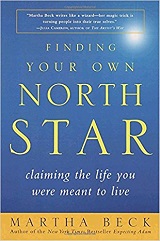 | 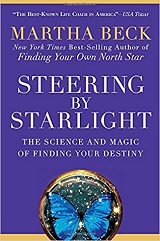 | 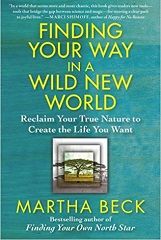 |  |
|---|

Katie Eigel is a freelance writer and social media strategist specializing in travel adventure stories. Katie currently works with best-selling authors, fortune 500 companies, and start-up entrepreneurs to strategize how to amplify their brands online and offline. The 8WD project will tell you that Katie’s 8WD travel stories profoundly changed people’s views of what it means to live your travel dreams.
Note: Articles by Katie Eigel may contain affiliate links, and Katie and/or 8WD could be compensated if you purchase after clicking on an affiliate link.
